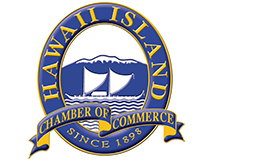The mana‘o and expertise of UH Hilo faculty enrich our island home
I have written in previous columns about the primary mission at the University of Hawai‘i at Hilo to educate our students and graduate responsible citizens, lifelong learners, and productive employees. I’ve also recognized that our university ‘ohana contributes greatly to the civic and social fabric of our community, with many students, faculty and staff lending their mana‘o and expertise to any number of issues including public health, K-12 education, economic stability, natural disasters, climate change, environmental conservation, sustainable agriculture and more.
This month I would like to share some of the fantastic work of our faculty in community engagement, leading locally based projects of benefit to the people, culture, and island, and conducting research of importance to the community and environment.
Let me give you a few examples of the work.
Natural Sciences
Research on hybrid forest ecosystems conducted by Professor of Biology Becky Ostertag and colleagues at the county and federal levels is directly behind the creation of a forest restoration bill recently signed into law by the mayor. Bill 178 is an amendment to the current Hawaiʻi County Property Tax Code that creates two additional native forest dedications including a functional forest and a successional forest land-use dedication. The changes will allow private landowners to receive reduced property tax rates for native forest restoration on Hawaiʻi Island, and promote the islandwide engagement of preserving native forests.
In another project, a long-term study by UH Hilo scientists shows Hawai‘i Island forests can regenerate once cattle and pigs are fenced out. Twenty-five years ago, UH Hilo biologist Patrick Hart tagged 7,000 trees in a declining Hawai‘i Island rainforest. The recent discovery of new and thriving growth of keiki ʻōhiʻa and koa in the studied area is good news about the forests’ native trees and the threatened bird species for whom the trees provide habitat. Working with Professor Hart on the project is Thomas Ibanez who is a post-doctoral fellow from UH Hilo’s biology department, and Shea Uehana and Joshua Pang-Ching, recent alumni of UH Hilo’s graduate program in tropical conservation biology and environmental science.
In other work, faculty and their students in the ʻIke Wai Research Experience in Data Science Program studied coral health and disease through digital images and investigated the pros and cons of using new technologies versus conventional techniques. John Burns, assistant professor of marine science, whose lab was used for the analysis, says the work is a good example of advancing science in an interdisciplinary manner capturing one of the main goals of the UH Hilo Data Science program to bring together faculty and students from multiple disciplines to conduct applied research of benefit to the region.
Data Science
A half-million-dollar award from the National Science Foundation to computer scientist Travis Mandel is having a major impact on research and educational activity on Hawai‘i Island meant to grow UH Hilo’s expertise and curriculum in the field of data science. The funding is going toward investigating new artificial intelligence techniques that involve humans “in the loop” to address problems of great local importance. The project is driving increased interest in science and technology among community members and local undergraduate students. This past summer, six students participated in an innovative research program under Travis’s tutelage where they worked on developing artificial intelligence systems to better support scientists in fields such as psychology, ecology, and marine science.
Language and Culture Revitalization
This year, to commemorate the 100th anniversary of the 19th Amendment, when American women won the right to vote, the USA TODAY Network named Kauanoe Kamanā one of 10 women from our state as a “Women of the Century.” Ten women in each state were named. The network noted that Kauanoe is an icon in Hawaiian language reclamation and revitalization, renowned for her deep commitment to her native language. She is a founding member and president of the Aha Pūnana Leo, the nonprofit, family-based organization committed to promoting Hawaiian language revitalization.
Making a tremendous impact on the revitalization of the Hawaiian language, Kauanoe is one of the early faculty of Ka Haka ʻUla O Keʻelikōlani College of Hawaiian Language at UH Hilo, the only Indigenous language college in the U.S. She also serves as director of Ke Kula ʻO Nāwahīokalaniʻōpuʻu, the internationally renowned preschool-12 Hawaiian-medium laboratory school. She was the first person of Native Hawaiian ancestry to receive a doctor of philosophy in Hawaiian and indigenous language and culture revitalization from UH Hilo.
These are but a few examples of the tremendous impact our faculty are having on the community, culture, and environment. For faculty at UH Hilo, this island is not just a place to work, but also their home, which brings with it the responsibility of making a positive contribution to our natural and cultural environments. While covid is taking up almost all focus in our lives, you can bet these scholars are pushing forward in their areas of expertise, gaining and sharing knowledge that will enrich us, the environment, and the very fabric of our multi-cultured community.
I mua!
Bonnie D. Irwin


Recent Comments